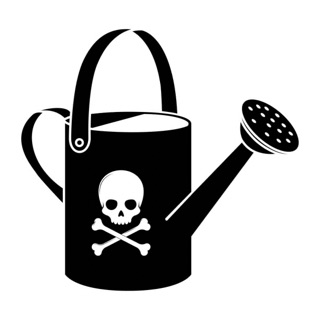
A 2024 report from the Women on Farms Project (WFP) states that 67 pesticides
currently used in South Africa’s agriculture sector are banned in the EU, but still exported to
non-European nations. These pesticides, such as RoundUp, are known carcinogens that in South
Africa combines with severely outdated legislation and negligent farm owners to create a situation
where commercial farms are not only killing South Africa’s environment, but also her farmworkers
About 19% of South Africa’s 49 million residents hold either seasonal or full-time farm
labourer positions. These workers mostly live in housing provided by farm owners, and in their
efforts to maximise profits, the conditions that these people live and work in are substandard. In
the last 30 years, pesticide usage in South Africa has grown tremendously,y leading to the country
becoming one of the largest pesticide importers in Africa. Education, training and safety
standards, however, have not improved with pesticide usage rates. There are a few farms with
clean running water and toilet facilities where workers can clean themselves, and pesticide
applicators often do not receive protective gear. Moreover, Farm workers work whilst pesticide
spraying occurs, there are few farms with clean running water and toilet facilities where workers
can clean themselves. Not only are these labourers working and living in these dangerous and
undignified conditions, but farmers do not follow safety guidelines for spray times, limits and
chemical mixing. A study held in the KwaZulu-Natal province in 2006 surveyed 803 female
farm workers, and of those 803, 45.6% were the primary pesticide sprayers on their farms, and
only 16.4% had ever received official pesticide training.
For centuries Europe has looked at Africa with both greed and contempt, and this is still
happening today. Agricultural toxins produced by companies like Bayer, which are banned in
Germany and the rest of the EU are still exported to countries in the global south. Why is
allowed to happen? Partly because the Fertilizers, Farm Feeds, Agricultural Remedies and Stock
Remedies Act 36 of 1947 is South Africa’s primary legislation regulating the import of
agricultural toxins. It is severely outdated and was written during the start of the Green
Revolution when chemically-intensive and industrialised agriculture was being prioritized. TheThe
South African government has laws and systems in place to deal with the health and human
rights violations taking place on farms, but unfortunately, the corruption and incompetence that
exist at the highest levels of state also exist at the lowest.
Pesticides in South Africa have leeched into the soil and waterways of the country.
Pesticides sprayed aerially can drift up to 15m from the target site, and water-soluble herbicides
applied directly to the plants have the highest chance of leaching into groundwater and potable
water sources. Soil nutrient quality and the earthworms that play a key role in aerating and
fertilising soil are also seriously affected by misuse of pesticides, with studies showing that
earthworm life expectancy and reproductive capacity is much lower in populations affected by
agricultural toxins. The health issues that come with these pesticides not only take a toll on the
people affected but also on the healthcare system. The majority of the cancers that farm workers
are diagnosed with are stomach, throat, and reproductive. A woman named Marie Adams told the
WFP research team that she had to receive an emergency full hysterectomy after she was
diagnosed with late-stage uterine cancer, which she attributes to years of no clean or running
water on the vineyard where she worked, forcing her to clean herself with the pesticide soaked
hem of her dress after she relieved herself.
With its rebirth as a democratic nation, South Africa also birthed one of the world's most
liberal and robust constitutions. As a major champion for human and civil rights on the global
scale, shockingly, South Africa fails to protect the aforementioned rights of not only its
citizens, but the workers who feed the country and export top-quality produce worldwide.
An ever-present blight upon democracy has been widespread poverty, the
poorest of the poor in South Africa live in informal settlements or “squatter camps”. People in
these settlements are using surplus pesticides to deal with rampant vermin infestations,
increasing unregulated human exposure to agricultural toxins. According to Statistics South
Africa, about 52 percent of South African households are food insecure, and if this current agricultural
toxin status quo continues, not only will farmworkers keep dying today but people will die in the
future when they cannot pull crops from ravaged soil nor drink poisoned water.
The immediate steps that the South African government needs to take are clear: New and
more robust agricultural toxin laws need to be written; regulatory bodies must be made stricter
and more vigilant; severe penalties such as prosecution need to be instituted for farmers who
violate pest and herbicide regulations and abuse the rights of their workers. The onus, however,
does not just lie on South Africa, the EU needs to institute a union-wide ban on the exportation
of pesticides that are banned within Europe and put an end to this vestige of colonialism.
By: Oren-Andrew P. Wentzel